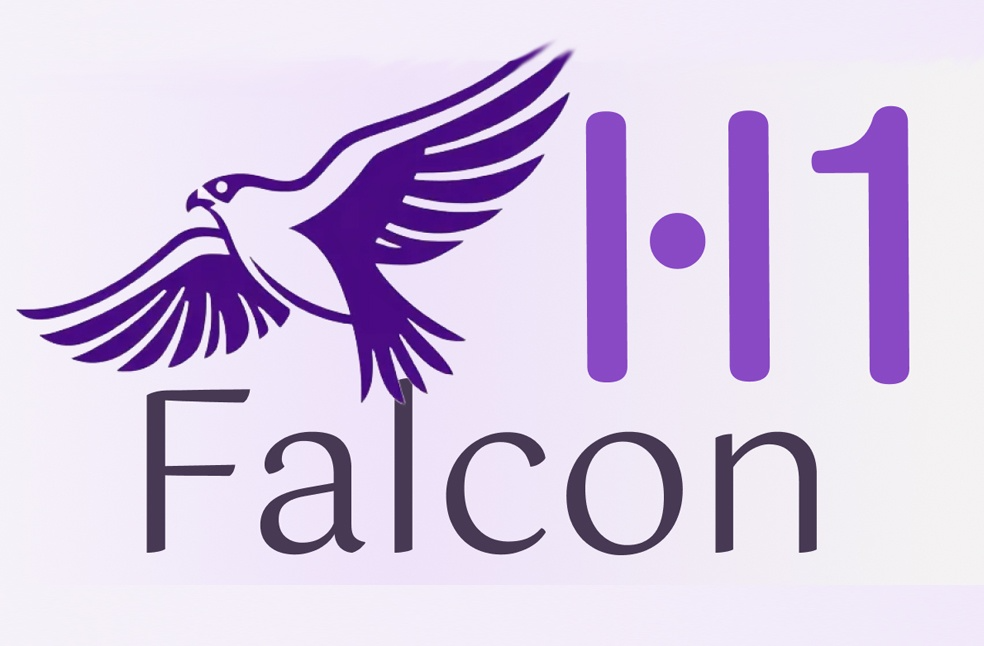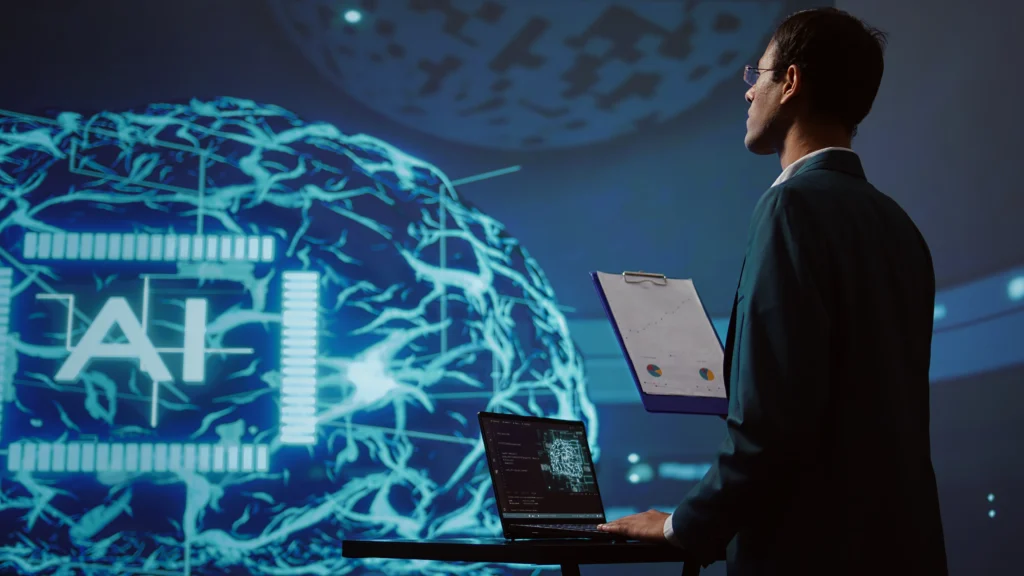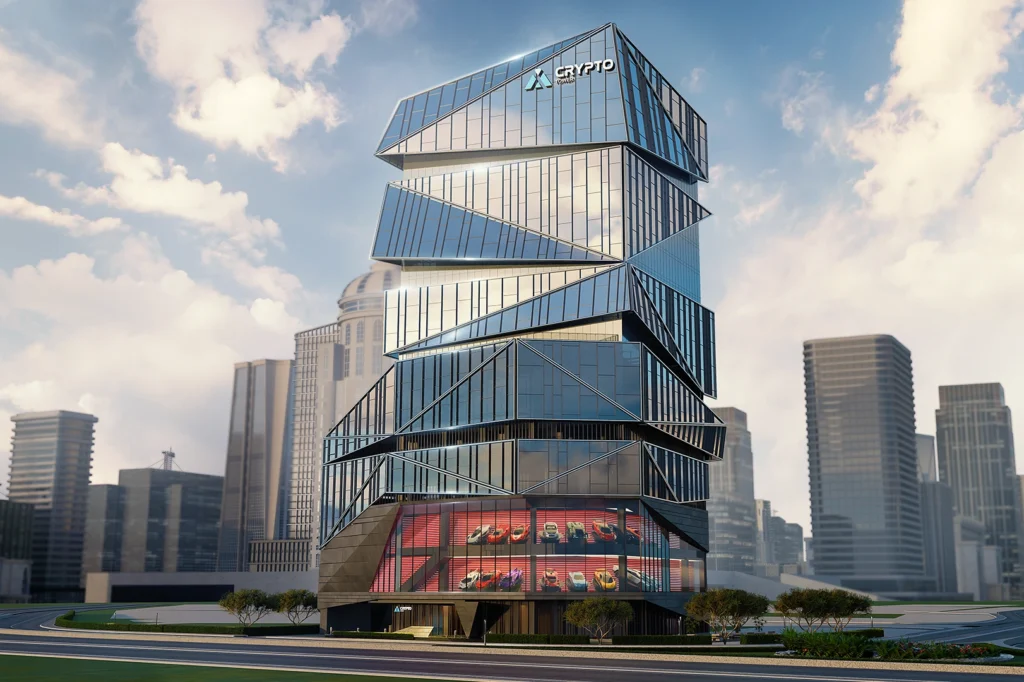Falcon Arabic The UAE’s Bold Leap into the Future of Arabic AI
By Rania lemari


In a major move that puts the UAE at the forefront of AI innovation in the Arab world, Abu Dhabi’s Technology Innovation Institute (TII) has launched Falcon Arabic, a powerful new AI model designed entirely around the Arabic language.
Recently, Abu Dhabi’s Technology Innovation Institute (TII) made waves with the simultaneous release of three groundbreaking AI models, marking a bold step toward democratizing advanced AI across languages, platforms, and devices. Among them, one model stood out as a historic milestone: Falcon Arabic, the most advanced large language model (LLM) ever trained natively in Arabic.
This is more than just a language upgrade. It’s a major leap forward in making artificial intelligence truly understand and communicate in Arabic, with all its richness, complexity, and cultural depth.
Most AI models today are trained in English — and when they try to “learn” Arabic, they usually do so using machine-translated data. That approach often strips away cultural nuance and how the Arabic language is actually spoken, especially the way it is used by people in different Arab countries and regions.
Falcon Arabic is trained entirely on native Arabic content, including Modern Standard Arabic as well as the everyday spoken dialects from across the Middle East and North Africa, including Gulf, Egyptian, Levantine, and Maghrebi Arabic, ensuring linguistic authenticity and deeper cultural fluency. Built on Falcon 3-7B with a 32K context, it is now the leading Arabic LLM in its class, fluent across dialects and strong in reasoning.
Falcon Arabic was created by TII, part of Abu Dhabi’s Advanced Technology Research Council (ATRC). The model is the result of years of work by linguists, AI engineers, and data scientists. Their goal was to give the Arabic-speaking world an AI model that actually speaks the way its people do and to do it in a way that respects regional culture and values.
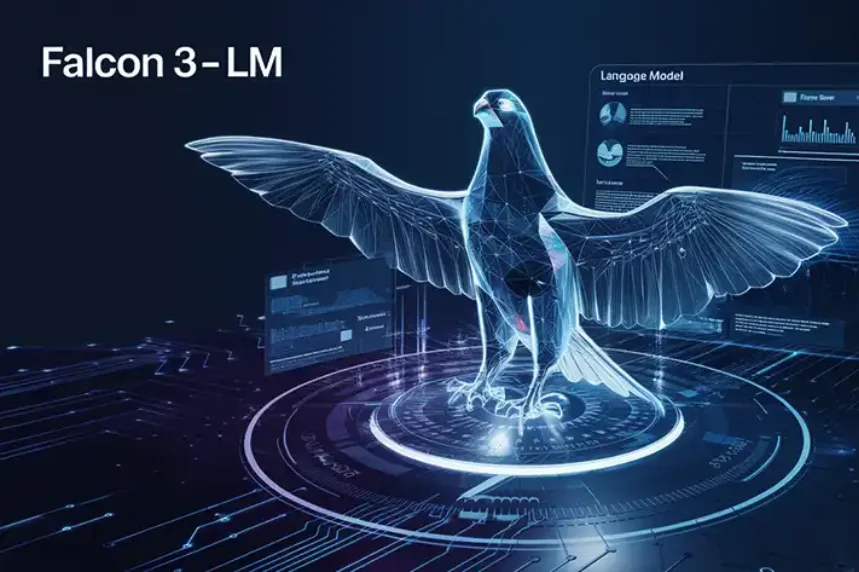

The launch of Falcon Arabic supports the UAE’s national goal of becoming a global leader in artificial intelligence. And it’s not just about research, it’s about real-world results.
That’s where AI71 comes in. This Abu Dhabi-based startup, backed by TII, is turning Falcon Arabic into practical, everyday tools for industries across the region. These tools are already being used to make life easier for Arabic speakers in hospitals, courtrooms, and public services.
TII didn’t stop at Falcon Arabic,, They also released two more models.
Falcon-Edge
A family of ultra-lightweight LLMs (1B and 3B parameters) designed for edge computing. Built on BitNet architecture, these models can run locally on devices like laptops and phones — no GPU required. A major leap in efficient AI for devices with limited compute and memory, like phones, robots, and embedded systems.
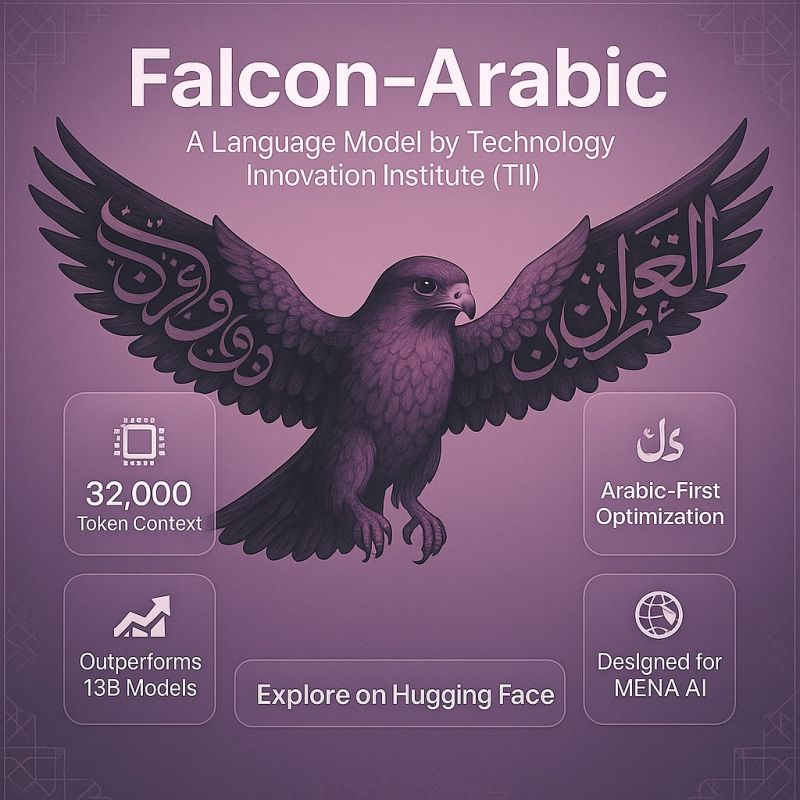

Falcon H1
An advanced hybrid architecture that blends Transformers and State Space Models (SSMs), available in various sizes from 0.5B to 34B, with a 256K context length. Built for performance and efficiency, it supports 18 languages natively and excels at complex reasoning.
Together with Falcon Arabic, these models give the UAE a powerful, flexible AI ecosystem, built locally, for local and global use.
During a recent visit from former U.S. President Donald Trump, H.H. Sheikh Khaled bin Mohamed bin Zayed said something that reflects the UAE’s mindset: “We are not as big as the United States… but we punch above our weight.”
That spirit reflects the bold, focused vision behind TII and AI71. With small teams and a clear vision, they’ve built AI tools that rival and even outperform — those from global tech giants.
This isn’t just about making machines talk. It’s about making sure that Arabic speakers are not left behind in the AI revolution.
Falcon Arabic will help improve everything from voice assistants and translation apps to online learning, customer service, and smart city systems. It also opens the door to more research into Arabic AI, encouraging other countries in the region to invest in similar efforts.
With Falcon Arabic, the UAE is setting a powerful example: that advanced technology doesn’t have to be imported, it can be created at home, in Arabic, for the Arab world.
For the Middle East, this is more than a technical milestone — it’s a cultural leap, a step toward digital sovereignty, and a model for how small nations can lead in global innovation.
